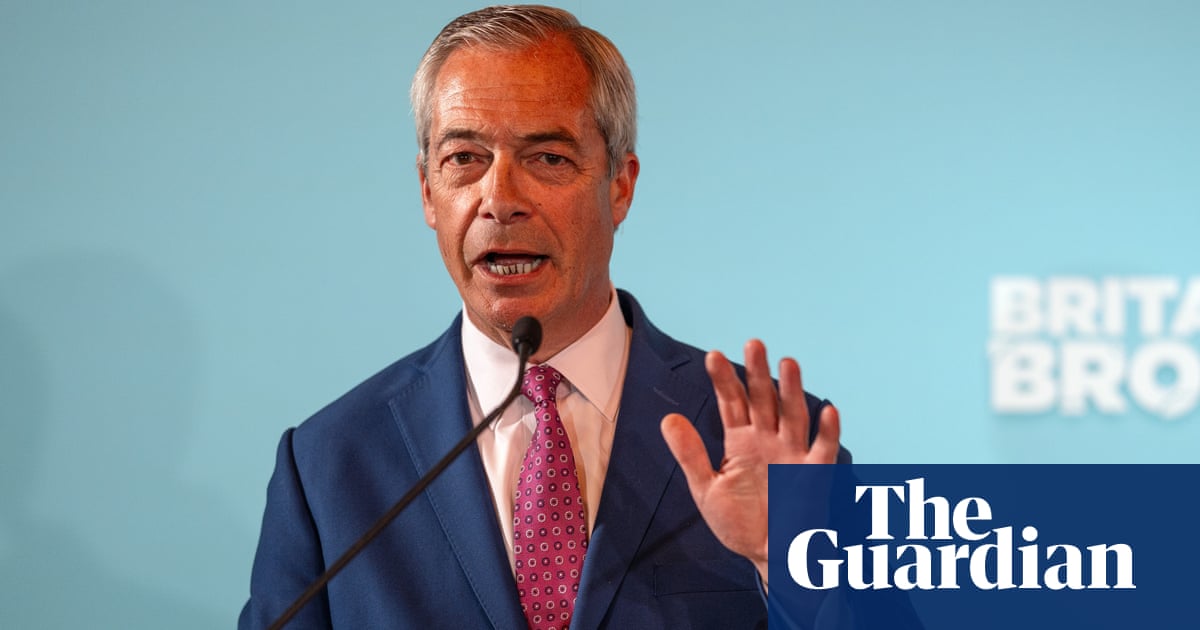There was a time when any election campaign featuring the nameNigel Faragewould have featured the word “Brexit” just as prominently.
And yet, almost a decade after Farage orchestrated Britain’s great EU schism, and with the Reform leader emerging as a bigger political threat than ever, at this week’s local electionsBrexitwas not a word on the lips of voters.
This is all the more surprising given many votes took place in working-class settings where voters are feeling the adverse effects of a limping economy which,some say, is hampered by the UK’s trading status outside the EU.
But if Farage doesn’t carry the damaging effects of Brexit as an electoral millstone around his neck, it may be because, according to one poll,Labourvoters who have defected to Reform don’t appear to blame him for it. In fact, they’re more likely to blame his political opponents.
Findings by the Good Growth Foundation, a thinktank with links to the Labour leadership, offer some insight. Its polling suggests that among a key group of swing voters Farage has managed to shift the responsibility for what is indisputably his lifetime achievement.
The findings are based on a poll of 2,200 voters carried out by JL Partners in mid-March, including 222 voters who backed Labour in the general election but now say they support Reform.
Of these Labour-Reform switchers, 39% said they believed Brexit had made the country worse – but by and large they did not blame Farage for it. Instead, 30% blamed the Conservative party and 29% blamed Boris Johnson. Only 11% said it was Farage’s fault.
Farage’s net favourability was 46% among Labour-Reform switchers, significantly higher than his national net approval rate approval of -2%. Admirers said they thought he defended British values, “tells it like it is” and speaks for ordinary people.
One woman in Rochdale who switched her support from Labour to Reform this year said: “Some of what he says is resonating with people, while a lot of the other, you know, MPs and stuff [are] very pasty about things.”
The local election results suggest Farage is successfully tapping into the public’s appetite for change, which less than a year ago helped Keir Starmerwin his landslide.
Labour strategists now see Reform as their primary threat. Jonathan Ashworth, the former Labour frontbencher, said the results suggested the country was heading towards a two-party systembetween Labour and Reform.
Over the coming weeks and months Labour figures will pore over research like this into the driving factors behind Reform’s surge, but MPs aredivided over the best way forward. Some want ministers to focus on bringing down legal and illegal migration while others say voters inRuncorn and Helsby, where Reform narrowly won, most frequently cited the government’scontroversial benefit cuts.
Keir Starmer has said this weekend that he ‘“gets it”, suggesting he is willing to take accountability for the policy decisions that some of his MPs believe have lost the party support in northern towns and cities.
For Farage, a man who has spent the majority of his career influencing policy from the sidelines, accountability for his one greatest political achievement appears to be slow in coming.
